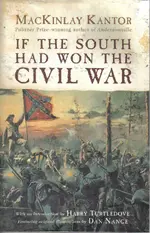JChambers
Jr. Member
Now that I see how many different opinions all of us here on treasurenet have to offer, I have a topic for us all to discuss. What is everyone's standpoint on General Lee at Gettysburg? Genius? Failure? Do you think that the disaster could have been prevented, and could Pickett's charge have actually worked? I'm full of opinons on this subject, I for one love the General and believe that he was the greatest officer of the entire war, arguably in the history of more recent wars. So let's hear what anyone else has to say.
Upvote
0





